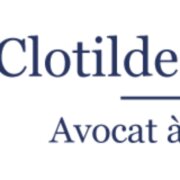Best Toxic Mold Lawyers in Albert
Share your needs with us, get contacted by law firms.
Free. Takes 2 min.
List of the best lawyers in Albert, France
About Toxic Mold Law in Albert, France
Toxic mold refers to several types of fungi that can grow in damp or water-damaged indoor environments, potentially causing health issues such as respiratory problems, allergic reactions, and other illnesses. In Albert, France, issues related to toxic mold can arise in both residential and commercial properties, often leading to legal disputes over liability, health consequences, and property damage. French law places responsibility on property owners and landlords to maintain habitable and safe living conditions, which includes addressing mold infestations promptly.
Why You May Need a Lawyer
Legal assistance may be necessary in several situations concerning toxic mold in Albert, France. If you are experiencing health problems suspected to be caused by mold exposure and believe it to be due to negligence on the part of a landlord or property owner, a lawyer can help you seek compensation. Property owners facing claims of negligence may need legal help to defend themselves or to manage remediation claims. Additionally, a lawyer can prove invaluable in navigating disputes over insurance coverage or pursuing claims for property damage due to toxic mold.
Local Laws Overview
The legal framework in Albert, and broadly in France, concerning toxic mold includes several key aspects. French law mandates that property owners ensure their premises meet health and safety standards. This includes timely remediation of mold issues to prevent health hazards. Landlords are required by law to ensure rental properties are free from hazards that could affect tenants' health. Failure to do so may render the landlord liable for medical expenses and property damage claims. Local housing authorities may impose fines or mandates for remediation if negligence in upkeep is determined.
Frequently Asked Questions
What constitutes toxic mold under French law?
Under French regulations, any mold that is present in sufficient quantities to cause or exacerbate health issues, damage properties, or render a living space uninhabitable is considered toxic. Specific species such as Stachybotrys chartarum are known for their associated health risks.
How can I identify toxic mold in my home or workplace?
Signs of mold include visible mold growth, musty odors, water stains, or respiratory symptoms among occupants. Mold can be confirmed with a professional assessment.
What legal recourse is available if I encounter toxic mold?
In Albert, tenants can report conditions to local health or housing authorities, and legal action can be pursued for compensation related to health issues or property damage.
Can I be evicted for reporting toxic mold?
French housing law protects tenants from retaliatory eviction if they report health and safety concerns like mold. Legal advice may be necessary if eviction is threatened.
What are my landlord's responsibilities regarding mold?
Landlords must ensure rental properties are safe and habitable, which includes addressing leaks, ventilation issues, and mold in a timely manner.
How can landlords prevent mold issues?
Regular property inspections, timely repairs, ensuring proper ventilation, and prompt attention to water damage can help prevent mold growth.
Can insurance cover mold damage?
Insurance policies vary, but many do not cover mold unless it’s the result of a covered peril. Legal advice may be necessary to interpret policy coverage.
What steps are required to legally prove mold-related health issues?
Medical documentation linking health issues to mold exposure, and evidence of mold presence through professional assessments, are typically required.
Who can test for toxic mold?
Certified environmental consultants or mold specialists conduct mold testing. They can assess the extent and type of mold present.
How long do I have to file a mold-related legal claim?
In France, the limitation period for civil claims is generally five years, but seeking advice from a lawyer can ensure proper procedural steps are followed.
Additional Resources
For additional guidance, individuals can reach out to the local housing authority in Albert, or consult organizations like the National Agency for the Safety of Medicine and Health Products, which offers information on health risks associated with mold. Environmental consultancies specializing in mold issues are also valuable resources for assessments and advice.
Next Steps
If you believe you need legal assistance related to toxic mold, it’s best to first document the mold presence and any health issues thoroughly. Seek out a lawyer who specializes in French residential and environmental law to discuss your case. Initial consultations are often free, and a lawyer can help you understand your rights and the best course of action tailored to your specific situation.
Lawzana helps you find the best lawyers and law firms in Albert through a curated and pre-screened list of qualified legal professionals. Our platform offers rankings and detailed profiles of attorneys and law firms, allowing you to compare based on practice areas, including Toxic Mold, experience, and client feedback.
Each profile includes a description of the firm's areas of practice, client reviews, team members and partners, year of establishment, spoken languages, office locations, contact information, social media presence, and any published articles or resources. Most firms on our platform speak English and are experienced in both local and international legal matters.
Get a quote from top-rated law firms in Albert, France — quickly, securely, and without unnecessary hassle.
Disclaimer:
The information provided on this page is for general informational purposes only and does not constitute legal advice. While we strive to ensure the accuracy and relevance of the content, legal information may change over time, and interpretations of the law can vary. You should always consult with a qualified legal professional for advice specific to your situation.
We disclaim all liability for actions taken or not taken based on the content of this page. If you believe any information is incorrect or outdated, please contact us, and we will review and update it where appropriate.








